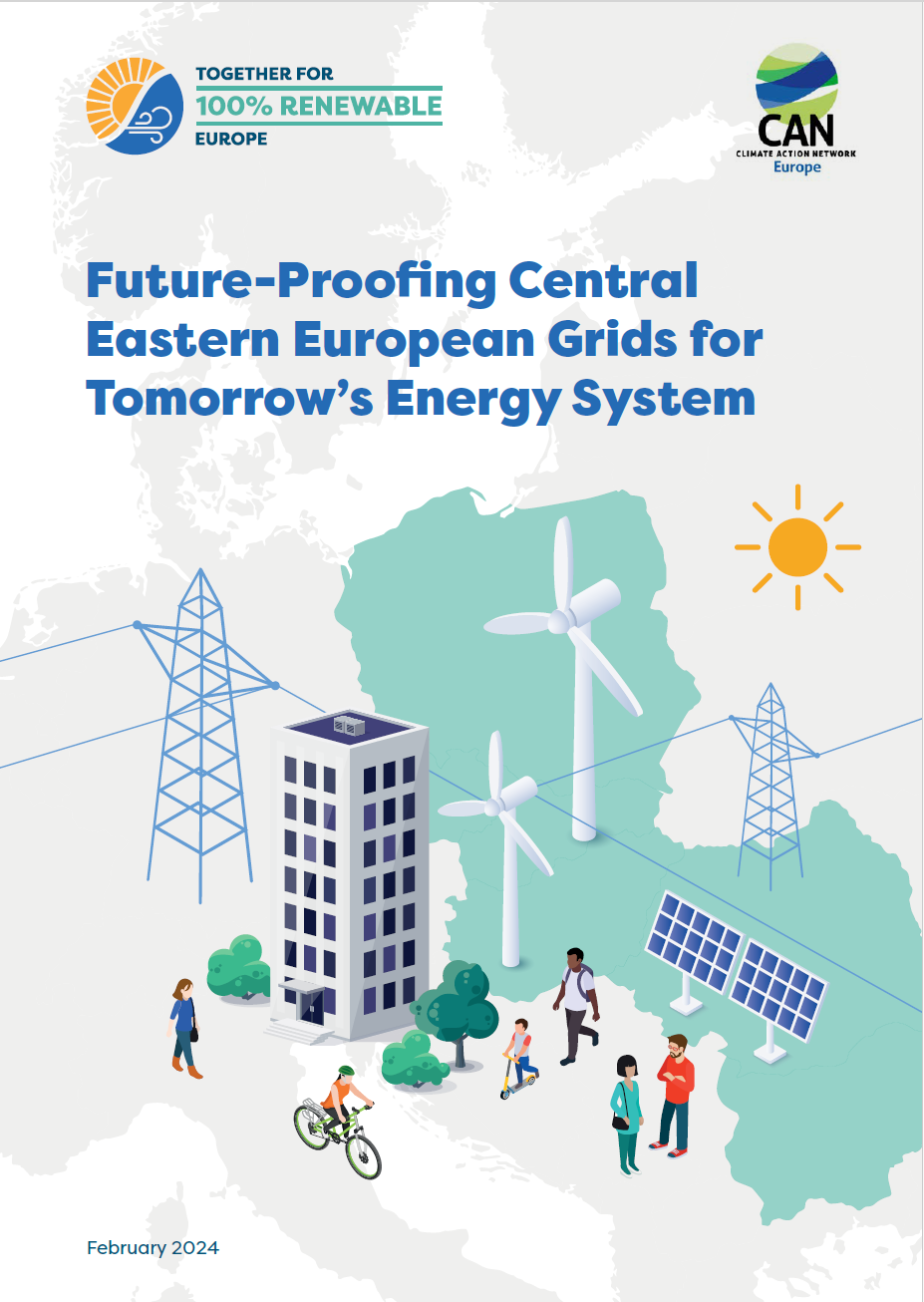CAN Europe’s latest briefing explores the opportunities and challenges within the Central Eastern European region when it comes to development of energy infrastructure and the grid network within the region.
However, countries within the Central Eastern European (CEE) region are grappling with numerous challenges that hinder the full realisation of renewable energy’s potential. Regulatory barriers often obstruct renewable energy projects, and technical bottlenecks impede the integration of renewable power. There is also still a heavy reliance on fossil fuels, including coal and fossil gas. This reliance is exacerbated by outdated and underinvested electricity infrastructure, posing significant hurdles to reach the required speed and scale of renewable energy growth and transition to a fully renewable, integrated, flexible, and secure energy system.
Addressing these bottlenecks offers the countries from the CEE region (Czechia, Slovakia, Poland, Bulgaria, Romania, and Hungary) a chance to become frontrunners in the cost-optimal and climate-friendly adjustment of the electricity grids.
Properly done and executed planning, would also take into account the energy poverty issues and enable consumers to reap all financial benefits of the transition to a system based on renewable electricity. There is also the opportunity for a decentralised energy system, promoting the growth of local energy initiatives run by people, for the people.
Future-proof and forward-looking planning for renewables and network development, which should aim at reaching climate neutrality by 2040, is still missing. To fully harness the potential and benefits of renewable energy, addressing the critical bottlenecks in electricity infrastructure has become imperative. This will require an increase in ambition and political commitment ensuring substantial investments to modernise and upgrade the existing grid infrastructure. Cross-border collaboration among neighbouring CEE countries is crucial for the transformation of the electricity grid infrastructure and integrating renewable energy sources effectively along with improving the regulatory and operational environment to ensure national regulatory bodies are equipped with the adequate resources, including budget and staff.
The urgency of grid modernisation in Central Eastern Europe cannot be overstated. Swift intervention is needed to ensure that the region not only keeps pace with the EU’s transition towards renewable energy, but also emerges as a frontrunner in the cost-effective, people-centred and climate-friendly adjustment of the electricity grids. The benefits of lower energy bills, enhanced energy security, and a resilient, fully renewable energy system are within reach. It’s time for CEE countries to seize this opportunity and lead the way towards a safer, energy secure future.







